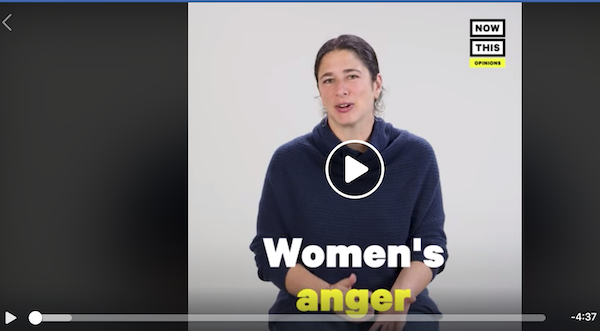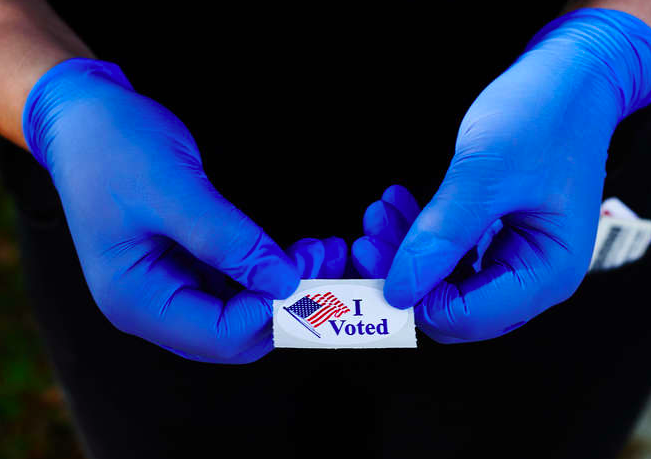How Do You Develop Your Social Conscience?
By: Iyabo Onipede – Confluence Daily is your daily news source for women in the know.
Proximity to the issue; and I recently had a wonderful breakfast with a buddy from seminary. Stephen is a pastor at Mt. Pisgah United Methodist Church in John’s Creek, Georgia where he is the Director of Special Needs Ministry. It was an eye-opener. He has always been warm and friendly and highly engaging. He reached out on Facebook and just wanted to stay in touch. So, we scheduled this breakfast.
Forgive me if I step on any toes and please feel free to correct me if I do not use the right language.
I can tell that Stephen has hearing issues. He wears hearing aids on both ears and this speech is slightly rounded out to my ears. I had no idea the extent of his hearing loss and the backstory to it.
He told me about his work at the church and I was immediately awed about a church having a pastor over special needs. That was new to my ears. He then went on to describe the special needs community (differently abled people) and how close-knit they are. When he got to the church about two years ago, there were probably a handful of special needs people in the congregation and now there are over 300. When they find a welcoming community, they band together.
When I asked Stephen, what was the greatest need of the special needs community, he said “accessibility to community.”
Wow.
He said, “Take me for instance,” as he pointed to his ear, “If I cannot hear you, I am not part of your community.”
I sat there stunned. I had never given that a single thought in all the days of my sucking air as breath in my body!
Here is my confession: I have a couple of friends that have children who have autism, but I do not know much about the entire Disabled, Differently Abled or Special Needs community. Honestly, I do not know if calling them “Disabled” is appropriate. I think “Special Needs” sounds better. And I just love “Differently Abled.”
I put that out there because I am reminded of Bryan Stevenson and his book Just Mercy. This life-changing book discusses his work with people on death row. He said that when it comes to criminal justice and race issues, it requires two things to make long-term effective change:
- Changing the narrative.
The same principles apply here. Because I do not have daily proximity to the Special Needs Community, I do not know much about what is going on in that community.
I think my personal behavior is pretty good but if I am honest, it is quite superficial. I am kind to those I know that have disabilities. I am sensitive and aware of them around me. I am inclusive of them in my conversation. I never avert my eyes or ignore the fact that a person with a disability is in my orbit. I include them when I come across them, but I do not go seeking them out.
Is that equity? Is that justice?
And I am using the term “them” in this conversation. That is a problem. I do not know how to navigate my language right now to be more inclusive.
See what I did there? I named the issue.
Hmmmmm….. How can we do better?
Stephen told me the following:
- In the US, 54 million people with disabilities require long-term housing. It takes over 30 years to get housing if you are put on the housing list in Atlanta. There are 8,000 people on that list in Atlanta right now. As soon as a baby is diagnosed with a disability, it is recommended that you put the child on the list at that time so that when the child becomes 21, hopefully, he or she will not have to wait much longer.
- 90% of the 54 million people living with disabilities do not go to houses of worship because of a lack of access and they often feel unwelcome. This community is starving for hope and connection.
- 360 million people worldwide are deaf. They want to be known as “the Deaf community” and that is the word “Deaf” with a capital D. Just like we make “African American,” a proper noun and capitalize the A, the Deaf community wants “Deaf” to be used as a proper noun. Think about how this impacts our census counting and the distribution of benefits to this demographic.
- The Bible has never been translated into sign language. I do not know if other canons have been translated but there are different sign languages and no Bible that can speak to the whole Deaf Community.
- Even the Special Needs Community is siloed. The folks concerned about Autism do their own thing and those concerned with wheelchair accessibility do their own thing and those focused on mental health issues do their own thing.
- Did you know that employers like Home Depot, when they hire people with disabilities, they can pay them whatever they want? They do not have to even pay them minimum wage.
What I know for sure is that a lot of my work focuses on human dignity. Every soul on the planet is deserving of dignity. I have not excluded the Differently Abled community from my world but I have not proactively sought them intentionally into my orbit. Yet, their stories matter.
Let us familiarize ourselves with a powerful narrative that shows the power of inclusion.
Let me tell you about the 9-year-old boy with autism that Stephen told me about. Oscar was 7 when his mom dropped him off at the special needs children’s ministry when she went to the church service. She gave instructions that Oscar cannot hear or speak and so if he was left in the corner with a toy, he would be fine. Well, Stephen decided that would not work. So, he sat on the floor next to Oscar and every Sunday for two years, he told this precious soul that God loves him.
Stephen explained to me that he himself was born deaf and had never had hearing ability. Therefore, he did not feel broken. He did not feel in need of repair or healing. In his Deaf state, he was created in the image of God. Because of this belief, he could tell Oscar, weekly, repeatedly, “Oscar, God loves you.” It felt like the Truth but there was never any evidence that Oscar understood.
About two years later, Oscar’s mom called Stephen weeping inconsolably. Stephen thought something awful had happened to Oscar. Something “awe-full” did happen. Oscar had spoken the first four words of his life at nine years old: “Mommy, God loves you.”
Ok. Yes, go ahead and cry.
You should have seen me in this diner, bawling my eyes out. There was not enough tissue to regain my composure!!!! Stephen just looked at me with pastoral kindness in his eyes.
This narrative is important because it speaks to the tenacity and long-term investment that it takes but the beautiful rewards are bountiful.
Social justice work is hard. Inclusivity is hard. Creating justice for those that don’t have access is compounded and difficult. Equity takes tremendous focus.
In this story, justice looked like the power of inclusion for a non-hearing and non-speaking child. This is not a “Christian” story or a religious story. It is a story about justice in the childcare of a church.
Justice is always about human dignity.
If you are committed to dignity, nothing is too hard. It is what is required.
This community is not volatile, and it is an easy entry point to stretch ourselves and make sure that we are providing dignity for all members of our community. Working with this community is a growing edge of sensitivity for me because I am not proximate to their issues. However, that must change.
Why?
You see, my freedom is bound up in yours and in theirs.
I cannot be free if my special needs brothers and sisters do not have the same things I have. If I did not have access to housing but now I do, and then those in the special needs community have to wait 30 years to get into housing, then my freedom to have housing is cheap and the day will come, when I will be excluded again. Just like they have been excluded.
To develop your social conscience, you must stretch yourself.
- Who do you not see?
- Who is at the table?
- Whose voice is muted or dimmed?
- Do you speak up for those not at the table?
- Do you demand that there is more inclusivity in your community and workplaces?
- Do you value their contribution?
We all have to start asking ourselves these hard questions. If we don’t, one day, we will be excluded as well.
Here are a couple of simple steps you can take:
- It is politician season. Ask them the hard questions about what their plans are for the special needs community. Educate yourself to know what the most pressing issues are and put it out there.
- Don’t sidestep that person in the wheelchair. Look them in the eye. Smile. Say, “Hello, there, how are you?” Be friendly towards them. Notice your default response and change it to be more dignifying.
- If you have a business, hire a person or persons with visible and known disabilities. Challenge yourself to create opportunities for this type of inclusivity.
Remember, not only is my freedom is bound up in yours, yours is bound up in mine too.
Iyabo is a Leadership Development Coach whose work focuses on the soul of the leader. She moves leaders from thriving careers into discovering, crafting and living their life work. By helping successful people integrate spirituality into their leadership roles, they become more engaged with their work, expand the connection of their work to social justice issues and experience more satisfaction in their life work. Using the power of narrative and reflection, she helps leaders fine-tune the sacred “work their souls must have” (Alice Walker).
Iyabo is located in Atlanta, Georgia and graduated from Goucher College (B.A.), Georgetown University Law School (J.D.) and Candler School of Theology at Emory University (M.Div.).
Iyabo’s home on the web is at http://www.coachiyabo.com.
Confluence Daily is the one place where everything comes together. The one-stop for daily news for women.





